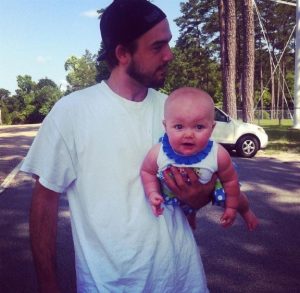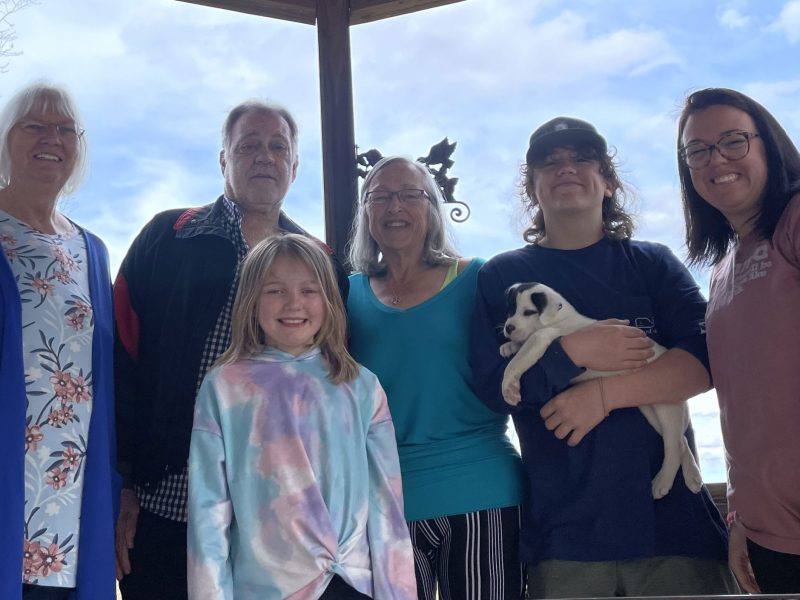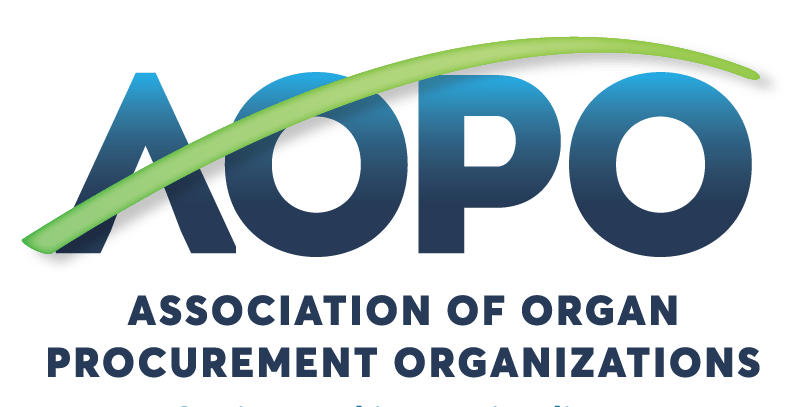Nearly two decades ago, Billy Williams was diagnosed with chronic obstructive pulmonary disease (COPD), a condition that progressively impaired his ability to breathe.
“I lived with COPD for years, but once it got to a certain point, it escalated quickly and it got really bad,” said Billy. “I was placed on the transplant list in October 2019. The last few months before I got my transplant I was on 15 liters of oxygen at rest. At the end there, I only had about two weeks left.”
Billy received the call that changed his life on May 26, 2020. “It was just after 1 a.m., and I had the phone right next to me,” recalled Billy. “I had been sleeping downstairs because I couldn’t get upstairs with oxygen. After I got the news, I called my wife, and I told her to come downstairs and help me with something. I didn’t tell her what it was, and when she came down and asked what’s wrong, I said, ‘you need to get dressed, we need to go to Chapel Hill.’”
Despite their excitement, Billy and his wife were acutely aware of the challenges that receiving a transplant during the COVID-19 pandemic would bring.
“I knew Covid was crazy, I knew the hospital was locked down,” said Billy. “It was a little bit of a challenge. I was supposed to be going into surgery at about 7 am, but at 6 a.m. they said that they were running a little behind. That was a little scary, because I thought that maybe there was something wrong with the lungs. They came in about 8 a.m. and said they were still running a little behind, but they went ahead and started all the IVs. I was finally taken in at about 9 a.m.”
Billy’s surgery was a success, with no major issues, but recovery wasn’t without its challenges. “I couldn’t tolerate eating, and I was allergic to something,” said Billy. “They kept trying to figure out what was going on. I ended up coming home for four weeks on a feeding tube. Of course, I was weak—I had lost all my muscle before surgery because I couldn’t do anything, and then I was lying in bed for four weeks. But I managed to get my strength back.”
A few months after his surgery, Billy began thinking about his donor and their family, despite his earlier decision to not ask questions. “I just woke up one morning wanting to know about the donor and the family. It was like someone flipped the light switch, and I just decided I wanted to know more,” Billy said.
Billy penned a letter to his donor’s family, sharing that he had been able to attend his granddaughter’s birthday party for the first time in years thanks to their loved one’s gift. After not receiving a response, Billy asked Laurie McDonald, his transplant social worker at UNC, to help him send another letter in the hopes that he’d get an answer.
“As it turns out, my donor’s mother had sent me a letter, but it took two months before her letter got to me through the system,” said Billy. “When I got her letter, I had already sent her a second one. We figured out we were both trying to make contact and trying to expedite it a little bit.”
In the end, the wait was worth it. Both families agreed to exchange their contact information, and Billy was startled to learn that his donor, Chris Tucker, was from Alabama, just 70 miles from where he was born and raised.
In 2020, Chris Tucker was 28 years old and full of life. The youngest of three, Chris was a proud dog dad and “funcle” (fun uncle) to all his nieces and nephews.

“Chris loved the outdoors, he liked sports, and he was a wrestler and cross-country runner in high school,” said his mother, Cindy Tucker. “He and his girlfriend would take their dog outside on walks all the time. He was very adventurous with food, and he was my best eater. He was a hugger and always made me feel special on Mother’s Day and my birthday.”
Chris lost his aunt, an organ donor, when he was just 9 years old—an experience that profoundly impacted him and sparked his interest in becoming an organ donor himself. “We’d talked about it his whole life,” said Cindy. “By the time he was an adult, he had already registered as a donor. It wasn’t really my decision, but I facilitated it in the hospital. As his mom, it felt like the last thing I could do for him, knowing how much it meant to him.”
In 2021, Billy and his family decided to visit his family in Alabama for the holidays. While there, he was able to meet his donor’s family on December 21.
“His mother, sister, nieces and nephew came and met us at my family farm,” said Billy. “It was bittersweet. I was scared. I didn’t know how to react, and I didn’t know how his mother, Cindy, would react. It was a good meeting, but it was tough. What do you say to a mother who has lost her son?”
Since Chris’s unexpected passing, Cindy has also corresponded with both his liver and kidney recipients. While Billy is the only recipient she has met in person, Cindy hopes there are more meetings on the horizon. “The recipient I’d love to hear from the most would be his heart recipient,” admitted Cindy. “I like to imagine that my son’s heart saved somebody with some type of heart disease. Someone who couldn’t go outside and do the things my son loved to do so much. Now, I just picture this person being able to do those things. That’s just something that really resonates with me.”
Since their initial meeting, Billy has visited the family two more times, deepening their bond and allowing him to learn more about the young man who saved his life. Last year, both Cindy and Billy appeared together in a video for Legacy of Hope, Alabama’s organ donation and tissue recovery organization.
“To see the whole process from beginning to end, and to be as involved with it as I have been, I do feel like it has helped my grief,” said Cindy. “When I get sad, I’m able to at least see some good that has come from it. I feel good about advocating with Legacy of Hope and doing this interview with HonorBridge, because I know I’m doing something that Chris would want me to do.”
Today, Billy is able to work part-time from the office—something he never thought he would do again.
“I’m a real estate agent, and I struggled in the office with oxygen tied to me all the time,” said Billy. “It got so bad that I had to quit. I got on so much oxygen that I couldn’t do anything but sit at home. I used to kid people that I counted the paint drops on the wall, because there was nothing else to do. I’m back in real estate now, about half a day at a time. That’s something that I never thought I’d be able to do again. I’m just so thankful.”
For those who are still waiting for a transplant, Billy emphasizes the importance of being dedicated and committed to their health, no matter how hard it gets. “It was a great experience with UNC, absolutely great. Dr. Haithcock, my surgeon, was wonderful. I can call my coordinator any time, even if it’s after hours, and it’s not even five minutes until I get a phone call back. But it’s important that people understand that it’s not a bed of roses. I could have given up several times, especially when I went backwards and couldn’t tolerate the medicine and couldn’t eat. I really wanted to give up, but I’m glad I didn’t. In the end, the outcome is worth it.”
Since his transplant, Billy encourages others to consider registering their decision to be organ donors.
“When it comes to organ donation, I was never against it, but I never just outright said I wanted to be a donor until I knew that I needed a donor,” admitted Billy. “But I am a donor now, there’s a heart on my license. I like to talk to anybody questioning it, because it is something I think a lot of people would do if they really understood how it can save people’s lives. The little stuff can make a significant difference — it doesn’t have to be lungs, it can be skin, or an eye. When you’re gone, if you have the chance to help somebody else, why not take it?”
75 lives could be saved and healed from one organ, eye, and tissue donor. Together, we can save lives. Register your decision today at honorbridge.org/registerme




